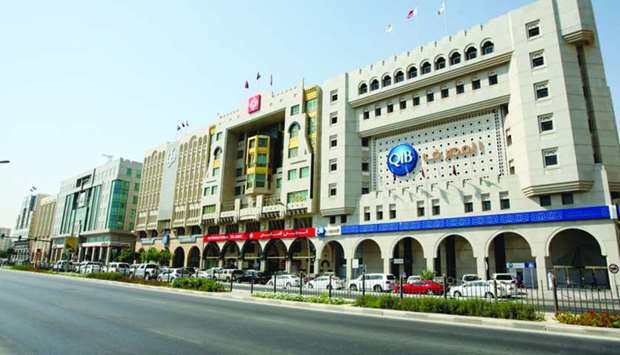Sound financials and government's willingness to support the sector and economy help the banking system in Qatar to weather the impact of the Covid-19 pandemic, various international credit rating agencies have reported in their detailed country analysis.
Nevertheless, the banking sector may see higher operational costs from redeploying manpower and IT/digitalisation infrastructure, the rating agencies cautioned.
Capital Intelligence (CI) expects the banks to be able to weather the impact of Covid-19 outbreak given their sound pre-crisis financial fundamentals, as well as the willingness and ability of the authorities to support the banking sector and the wider economy.
The Qatar Central Bank (QCB) has already made it clear that it would provide additional liquidity to banks operating in the country if needed. It has opened a QR50bn repo facility with zero interest rate, as part of the overall QR75bn stimulus package for the private sector, helping the banking sector to absorb funding costs and provide relief, especially to small and medium enterprises.
While there will be fallouts in certain sectors (work-in-progress real estate and contracting projects, domestic trade, foreign operations), the overall good asset quality and strong credit loss absorption capacity, and strong capitalisation, means the banks should be able to "withstand any reasonable pressure", CI said.
This reference was made recently after affirming the short term and long term currency ratings of QNB, Qatar Islamic Bank and QIIB.
The main immediate challenge is to the banks' profitability as demand for banking credit and transactions are dampened and the net interest margins tighten due to the inability in the current climate to pass on higher costs of funding to customers.
Besides, the lenders are likely to face higher operating costs from redeploying manpower and IT/digitalisation infrastructure.
KPMG Qatar had opined that banking operations are evolving and becoming more digital as the situation demands, and this would require the pace of customer acceptance of such banking channels to also increase and move away from the historical preference for 'in person' banking.
Although CI viewed profitability to be affected by additional loan loss provisioning, it said “however, assuming business activity and consumer confidence gradually recover during the second half of 2020, the impact on profits should not be dramatic."
Another international credit rating Moody’s had said Qatari banks are well capitalised and profitable and they are highly likely to benefit from government support if required; reflecting the solid base to absorb unexpected losses in view of the weak oil prices and the global pandemic Covid-19.
Standard and Poor's viewed that the Covid-19 pandemic and the collapse of oil prices would test the earnings of Gulf-based lenders but overall they could absorb up to a $36bn shock (in normalised losses) before starting to deplete their capital base.
Capital Intelligence (CI) expects the banks to be able to weather the impact of Covid-19 outbreak given their sound pre-crisis financial fundamentals, as well as the willingness and ability of the authorities to support the banking sector and the wider economy.
The Qatar Central Bank (QCB) has already made it clear that it would provide additional liquidity to banks operating in the country if needed. It has opened a QR50bn repo facility with zero interest rate, as part of the overall QR75bn stimulus package for the private sector, helping the banking sector to absorb funding costs and provide relief, especially to small and medium enterprises.
While there will be fallouts in certain sectors (work-in-progress real estate and contracting projects, domestic trade, foreign operations), the overall good asset quality and strong credit loss absorption capacity, and strong capitalisation, means the banks should be able to "withstand any reasonable pressure", CI said.
This reference was made recently after affirming the short term and long term currency ratings of QNB, Qatar Islamic Bank and QIIB.
The main immediate challenge is to the banks' profitability as demand for banking credit and transactions are dampened and the net interest margins tighten due to the inability in the current climate to pass on higher costs of funding to customers.
Besides, the lenders are likely to face higher operating costs from redeploying manpower and IT/digitalisation infrastructure.
KPMG Qatar had opined that banking operations are evolving and becoming more digital as the situation demands, and this would require the pace of customer acceptance of such banking channels to also increase and move away from the historical preference for 'in person' banking.
Although CI viewed profitability to be affected by additional loan loss provisioning, it said “however, assuming business activity and consumer confidence gradually recover during the second half of 2020, the impact on profits should not be dramatic."
Another international credit rating Moody’s had said Qatari banks are well capitalised and profitable and they are highly likely to benefit from government support if required; reflecting the solid base to absorb unexpected losses in view of the weak oil prices and the global pandemic Covid-19.
Standard and Poor's viewed that the Covid-19 pandemic and the collapse of oil prices would test the earnings of Gulf-based lenders but overall they could absorb up to a $36bn shock (in normalised losses) before starting to deplete their capital base.


